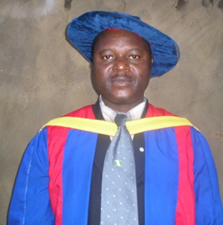Together, the research team will work to expand novel farming practices to 50,000 farmers and promote demand through indigenous vegetable production and value addition technology. The UNIOSUN team will lead innovative farming techniques research, training of farmers, value addition technology and general superintendence of project activities.
In Nigeria, more than 1,000 farmers increased their yields and doubled their incomes by using improved farming practices to grow underutilized indigenous vegetables. These improved farming practices were developed during the field research carried out in southwest Nigeria from 2011-2014 by a team of researchers led by UNIOSUN. In Benin Republic, fertilizer micro-dosing and rainwater harvesting techniques helped more than 10,000 farmers achieve equally beneficial results with other crops, despite degraded soils.
The research team is now combining these innovations to bring the practices to 50,000 farmers through demonstration trials, outreach efforts, support and training for seed producers and marketers. They will also help establish local committees to address issues such as productivity, marketing and processing. The efforts could improve the incomes of more than one million West African farmers.
The project being led by UNIOSUN professor is among the four international projects which have been collectively awarded $17 million by Canada’s IDRC. They are part of an effort to scale up the most promising research supported under IDRC’s Canadian International Food Security Research Fund (CIFSRF).
CIFSRF is a $124 million fund that works to increase food security in developing countries by funding research in agricultural innovation and nutrition, and fostering collaboration between developing-country researchers and Canadian experts.

 An international research consortium led by
An international research consortium led by